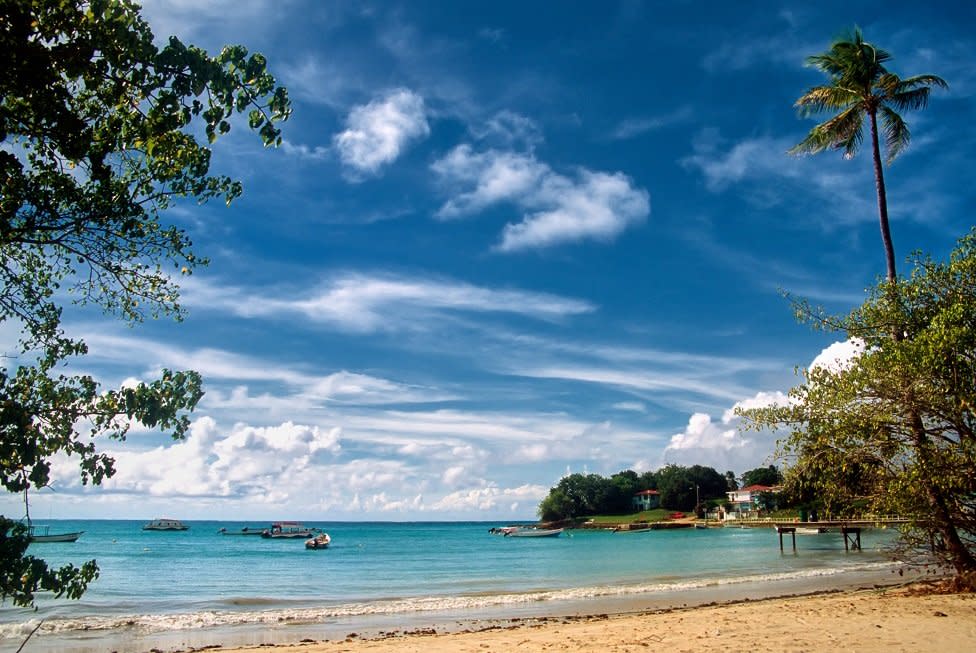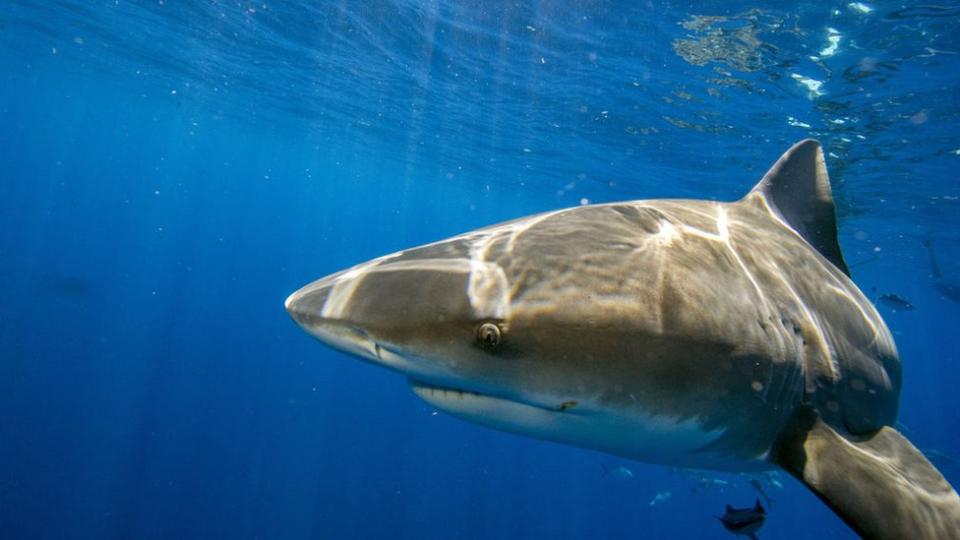Tobago shark attack: British man Peter Smith injured 10 metres from shore

A British man has been seriously injured after being attacked by a shark on the Caribbean island of Tobago.
Peter Smith, 64, received critical care after sustaining serious injuries to his left arm, left leg and stomach, according to a local official.
He said Mr Smith was attacked 10 metres off the shore in Courland Bay, on the island's north coast, at 09:15 (14:15 BST) on Friday.
The Foreign Office said it was supporting the family.
The incident involved a bull shark estimated to be eight to 10 ft (2.4m to 3m) long and 2ft (60cm) wide, according to a statement by the Tobago House of Assembly.
In a press briefing late on Friday, its chief secretary Farley Augustine had said Mr Smith was being treated in intensive care, where he was being kept under sedation.
He had had some fingers reattached but still had "significant wounds" to one of his legs and would require "extensive work", Mr Augustine said.
At the briefing he had told reporters that health professionals had initially been trying to stabilise Mr Smith and "save life and limb".
Mr Augustine told the BBC on Saturday that Mr Smith, from Berkhamsted, Hertfordshire, was doing "extremely well and is recovering nicely".
Mr Smith had been in Tobago with his wife and friends, and that the group had been due to fly home on Friday, Mr Augustine said.
He added that the local government was working closely with the British High Commission to "ensure that the family gets all that they need during this difficult time".
Eyewitness Orion Jakerov, water sports manager at the nearby Starfish Hotel, said other people in the water were "physically trying to fight off the shark".
He told the local broadcaster TTT Live: "I don't think they saw it. They were about waist height in the water so they weren't out of their depth.
"I think their backs were turned and they were just kind of lounging around. Nobody saw the shark coming."

Authorities closed seven beaches and all coastal areas between the town of Plymouth on the island's northern coast and Store Bay on its western tip, a stretch of around seven miles (11.3km).
The stretch also includes a marine park surrounding the Bucco Reef, one of the island's largest coral reefs and a popular tourist attraction.
Drones were being used to carry out surveillance of the area, and anyone operating a boat was urged to exercise caution.
Officials said the closures had been enacted "out of an abundance of caution" and would remain in place on Saturday.
They also said they would "neutralise the threat if possible".
Mr Augustine said a $10,000 (£8,010) bounty previously offered to anyone who could capture the shark and move it away from the beaches had been retracted.
Bull sharks are known to be aggressive and are most often found in shallow waters along tropical coastlines, making them - along with great white and tiger sharks - among the species most likely to come into contact with, and attack, humans.
Tobago, the smaller of the two islands of Trinidad and Tobago, is located in the southern Caribbean, around 74 miles (119km) off the coast of South America.
According to the International Shark Attack File database, the vast majority of shark attacks in the region occur further north, in the central Caribbean and off the eastern and southern coasts of the US.
In the last 20 years, there have been only two recorded shark attacks as far south as Tobago, and neither was within 200 miles of the island itself.

Are you on holiday in Tobago near Courland Bay? Share your experiences by emailing haveyoursay@bbc.co.uk.
Please include a contact number if you are willing to speak to a BBC journalist. You can also get in touch in the following ways:
WhatsApp: +44 7756 165803
Tweet: @BBC_HaveYourSay
Please read our terms & conditions and privacy policy
If you are reading this page and can't see the form you will need to visit the mobile version of the BBC website to submit your question or comment or you can email us at HaveYourSay@bbc.co.uk. Please include your name, age and location with any submission.


